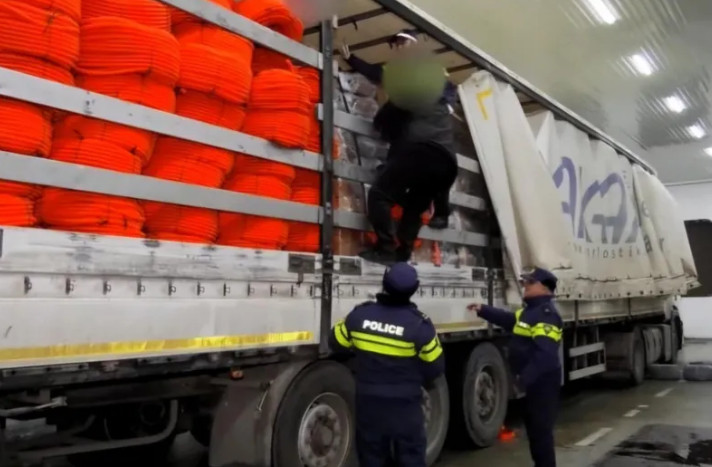
TBILISI, DFWatch–Frustration is mounting among Armenian alcoholic beverage exporters as their trucks carrying cognac and spirits are being stopped and checked while transiting Georgia en route to Russia, prompting diplomatic exchanges between Yerevan and Tbilisi.
On May 13, Armenian beverage producers demonstrated outside the Georgian Embassy in Yerevan, alleging that Georgian authorities were deliberately hindering their exports. Hayk Shahnazarian, a business owner affected by the delays, stated, “Losing access to the Russian market could bankrupt us.” Armenia’s Economy Minister Gevorg Papoyan acknowledged the issue and indicated ongoing discussions with Georgian officials, although a planned visit to Tbilisi has yet to occur.
Some analysts suggest ‘geopolitical shifts may be in play.’ Eurasianet speculate that Georgia’s increased checks might be influenced by broader geopolitical dynamics, suggesting alignment with Russian interests to exert pressure on Armenia. Pointing to an article published in Izvestia, the outlet draws parallels to the 2006 Russian embargo on Georgian products, which was officially justified by health concerns but widely perceived as politically motivated. The embargo followed Georgia’s arrest of four Russian officers on espionage charges and its pro-Western orientation, including aspirations to join NATO. Russia’s response included banning imports of Georgian wine, mineral water, fruits, and vegetables, significantly impacting Georgia’s economy.
However, an alternative explanation focuses on economic factors. According to Georgia’s National Statistics Office (GeoStat), alcoholic beverages, including wine and spirits, constitute approximately 15% of the country’s total exports, surpassing other significant sectors such as metals. Given the importance of this industry to Georgia’s economy, increased scrutiny of transiting alcoholic products could be interpreted as a protective measure to safeguard domestic producers from regional competition, particularly from Armenia, which also has a robust beverage export sector.
The Georgian Revenue Service has denied any changes in customs procedures, asserting that standard protocols are being followed.

